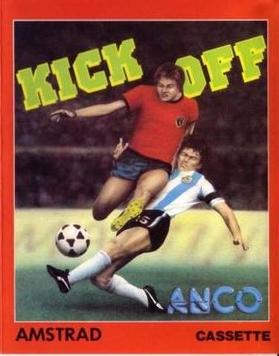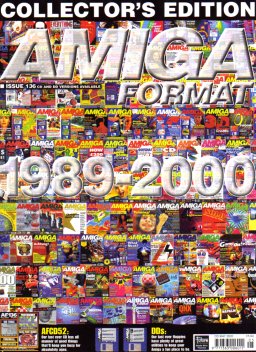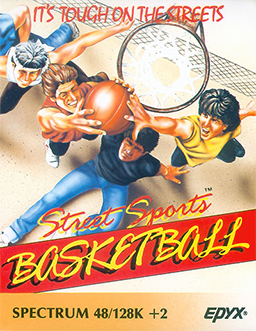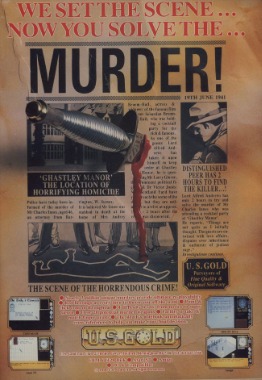Commodore International Corporation was a home computer and electronics manufacturer incorporated in The Bahamas with executive offices in the United States founded in 1976 by Jack Tramiel and Irving Gould. Commodore International (CI), along with its subsidiary Commodore Business Machines (CBM), was a significant participant in the development of the home computer industry, and at one point in the 1980s was the world's largest in the industry.

The Amiga 600, also known as the A600, and full title Commodore Amiga 600, is a home computer introduced in March 1992. It is the final Amiga model based on the Motorola 68000 and the 1990 Amiga Enhanced Chip Set. A redesign of the Amiga 500 Plus, it adds the option of an internal hard disk drive and a PCMCIA port. Lacking a numeric keypad, the A600 is only slightly larger than an IBM PC keyboard, weighing approximately 6 pounds (2.72kg). It shipped with AmigaOS 2.0, which was considered more user-friendly than earlier versions of the operating system.

Commodore User, later renamed to CU Amiga, is a series of American and British magazines published by Commodore International.

The CDTV is a home multimedia entertainment and video game console – convertible into a full-fledged personal computer by the addition of optional peripherals – developed by Commodore International and launched in April 1991.

The Kick Off franchise is a series of football simulation video games created by Dino Dini. Kick Off was published by Anil Gupta's publishing house Anco Software for the Atari ST and Commodore Amiga. First released in 1989, Kick Off was well-received and won awards.
Novagen Software Ltd was a British software developer which released a number of computer games on a variety of platforms from the mid-1980s to the early 1990s.
Artworx was a Naples, Florida software company that produced and supported a line of computer games from 1981 to 2015. It is named after the founder's given name. At first the company published a variety of games, including titles in adventure and arcade-action genres, but were later best known for a strip poker series.

PGA Tour Golf is a golf video game and the first in the PGA Tour game series. It was developed by Sterling Silver Software and released in 1990, for MS-DOS. It was initially published by Electronic Arts, which subsequently released versions of the game for Sega Genesis and Amiga in 1991, followed by a version for the SNES in 1992. By 1994, Tengen had published versions for Sega's Master System and Game Gear consoles. PGA Tour Golf received generally positive reviews for its realism, sound, and camera. Several critics considered the computer versions to be the best golf game available at the time of its release. It was followed by PGA Tour Golf II.

Amiga Format was a British monthly computer magazine for Amiga computers, published by Future Publishing. The magazine lasted 136 issues from 1989 to 2000. The magazine was formed when Future split ST/Amiga Format into two separate publications.

Fiendish Freddy's Big Top o' Fun is a video game developed by Gray Matter under developer Chris Gray and published in 1990 by Mindscape. It originally appeared on the 16-bit Atari ST, IBM PC and Commodore Amiga, before later being converted to the ZX Spectrum, Commodore 64, Amstrad CPC. The Commodore 64 version was included on cartridge bundled with the Commodore 64 Games System.
The Amiga is a family of home computers that were designed and sold by the Amiga Corporation from 1985 to 1994.

F/A-18 Interceptor is a combat flight simulator developed by Intellisoft and published by Electronic Arts for the Amiga in 1988. The player mainly flies the F/A-18 Hornet, but the F-16 Fighting Falcon is also available for aerobatics, free flight and the first mission. Contrary to the title of the game, the real F/A-18 is not a true interceptor aircraft, having been designed instead as a multirole anti-ship strike fighter.

Street Sports Basketball is a sports video game for IBM PC compatibles, Amstrad CPC, Amiga, Apple II, Commodore 64, and ZX Spectrum. It was developed by Epyx and published by U.S. Gold.

Elvira II: The Jaws of Cerberus is the second game in the Elvira series of horror adventure/role-playing video games. It was developed by Horror Soft and published by Accolade in 1992. The game is a sequel to 1990's Elvira: Mistress of the Dark. It was followed by Waxworks, which can be considered its spiritual sequel.

Falcon is a combat flight simulator video game and the first official entry in the Falcon series of the F-16 jet fighter's simulators by Spectrum HoloByte. Originally developed by Sphere for Macintosh and MS-DOS in 1987 and ported to several platforms between 1988 and 1992, the game earned commercial success and critical acclaim.

World of Commodore is an annual computer expo dedicated to Commodore computers.

TV Sports: Football is a 1988 video game by Cinemaware for Amiga, Atari ST, Commodore 64, DOS, and TurboGrafx-16.

Windwalker is a 1989 video game published by Origin Systems.

Murder! is a 1990 video game published by U.S. Gold.















